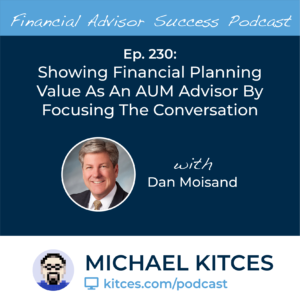Enjoy the current installment of "Weekend Reading For Financial Planners" – this week's edition kicks off with a fascinating industry study of more than 70,000 financial advisors showing that 2020 actually witnessed record client retention rates across the industry (94.6%) but also one of the slowest years for new client acquisition (ostensibly at least in part because so few clients were willing to change advisors in the first place?), as the advisory industry at large continues to shift into increasingly stable ongoing fee-based AUM relationships with its affluent clients (though in practice, the majority of affluent clients are also maintaining unmanaged brokerage accounts for at least some of their investable assets as well!).
Also in the industry news this week are a number of other interesting headlines:
- A new white paper from Bob Veres and Matthew Jackson highlights how niche financial planning is becoming the new frontier (though arguably, fee-only financial planning already has been a niche for the past 20 years?)
- An Arizent study finding that the majority of advisors wish to stay at least partially working from home as the pandemic subsides... although not significantly more than the number of advisors who already worked at least partially from home pre-pandemic!?
From there, we have several interesting articles on cryptocurrency:
- The FPA's latest Trends In Investing survey shows a significant spike in the number of advisors looking to allocate more to cryptocurrency in the coming year (at 26%, up from fewer than 1% of advisors just 1 year ago)
- Schwab may be gearing up to soon make cryptocurrency investing available on its platform
- Why the dominance of cryptocurrency in the consumer media means advisors have to talk to clients about it, even if the advisor's view is that it's not (yet?) worth investing into
We've also included a number of articles on the growing buzz around inflation:
- A recent study highlights the investments that perform better or worse when economies transition into higher inflation environments
- The heat is coming off forward-looking inflation expectations as investment markets increasingly assume the Fed may act
- How to have the 'inflation conversation' with clients by focusing on the Rule of 72 and how long it takes for prices to double
We wrap up with three final articles, all around the theme of adding value in client relationships:
- The opportunities for even fee-only advisors to add value to clients with advice about their insurance policies (even and especially if the advisor isn't the one selling them)
- Tips on how to have more productive annual client review meetings by breaking them into backward-looking and forward-looking sections of the meeting agenda
- How to think about restructuring advice fees into Service Fees and separate Access Fees to better align the interests of the client and their advisor to provide ongoing value
Enjoy the 'light' reading!

 Welcome back to the 231st episode of the Financial Advisor Success Podcast!
Welcome back to the 231st episode of the Financial Advisor Success Podcast! Welcome back to the 230th episode of the Financial Advisor Success Podcast!
Welcome back to the 230th episode of the Financial Advisor Success Podcast!
